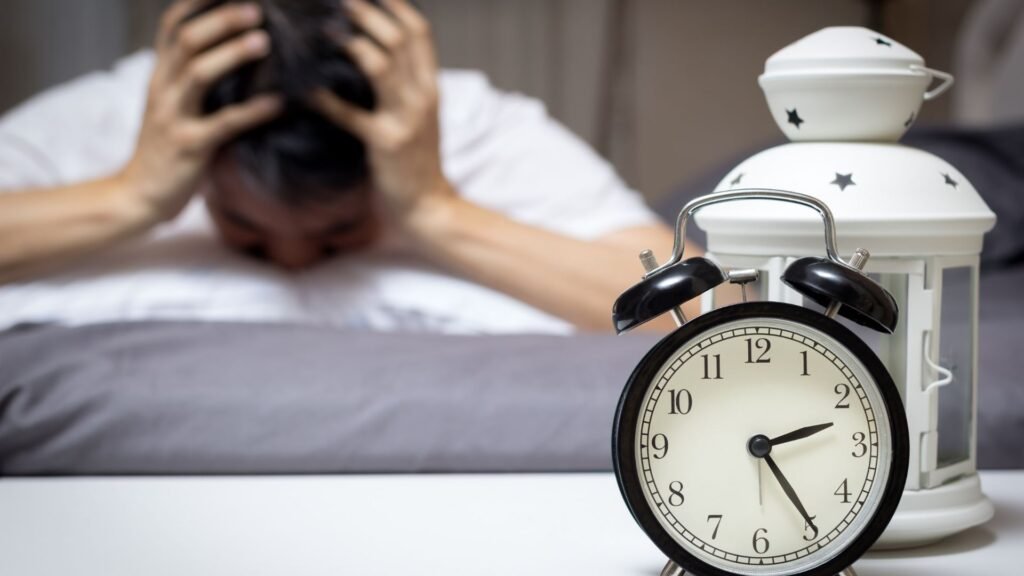How many times have you woken up from sleep feeling extremely energetic and refreshed? Do you miss such mornings? It may be because you are dealing with insomnia or other sleep disorders. A good night’s sleep is extremely important for physical and mental well-being. Yet, millions of people around the world struggle with sleep disorders, leading to fatigue, daytime tiredness, and a decreased quality of life.
While medication can be helpful in several cases, there are also several natural ways to manage sleep disorders and improve your tiredness.
Let us explore expert tips to help you reclaim control of your sleep naturally. Before exploring the tips let us have an overview of sleep disorders.
What are sleep disorders?
Sleep disorders are certain problems that are associated with sleep quality, duration of sleep, which often results in daytime sleepiness and functional disorders.
What are the common causes of sleep disorders?
There are several causes that might lead to sleep disorders, they might include:
- Pain
- Stress
- Trauma
- Digestive problems
- Certain medications
- And ofcourse sleep disorders
What are the common symptoms of poor sleep?
As the name suggests, loss of sleep is the most common symptom. Poor sleep can cause,
- Difficulty in concentrating
- Makes you feel tired or lazy
- Difficulty in memorizing
- Waking up tired even after sleeping
- Trouble falling asleep or staying asleep
- Loud snoring
- Feeling sleepy in the middle of the day
Why is sleep important for the human body?
Sleep is a necessity just like oxygen and water, sleep is needed to keep the body functioning. And it is important for maintaining good mental and physical health. There are two different kinds of sleep that usually happen in three to five cycles every night:
Rapid eye movement: That is when the dreams occur
Non-REM: It has three different phases, which includes the deepest sleep
The circadian rhythm, which our bodies normally follow, is a 24-hour cycle that aids in determining when to go to sleep.
The amount of sleep that each of us needs differs based on our age. The majority of adults require seven to nine hours of sound sleep every night. Ideally with regular sleep and wake times, according to the National Sleep Foundation.
Many of us sleep too little. Only about 30% of high school students report getting at least eight hours of sleep on a usual school night, and a third of adults say they usually get less than the recommended amount.
What are the two major types of sleep disorders?
Insomnia disorder:
The most prevalent type of sleep disorder, insomnia is characterized by difficulty in falling or staying asleep. Adults who report symptoms of insomnia makeup about one-third of the population, 10 to 15% report difficulty functioning during the day. And 4 to 24% report symptoms severe enough to meet the criteria for insomnia disorder. Seek insomnia treatment in Coimbatore in case you have been dealing with sleep issues.
Sleep apnea:
Sleep apnea often causes breathing disruptions during sleep and is a common symptom of hypopnea. An individual suffering from sleep apnea will frequently experience episodes of airway blockage while they are asleep, which can result in breathing difficulties, snoring, and gasping. A clinical study is the way to diagnose sleep apnea.
Here are the best tips for managing sleep disorders naturally:
Craft a sleep-friendly routine:
Our bodies live on routines, and sleep has no excuse. Establishing a consistent sleep schedule, even on weekends, helps regulate your body’s natural sleep wake cycle, known as the circadian rhythm.
Here’s how you can build a healthy sleep routine:
Set a consistent sleep schedule:
Even on weekends, set a consistent bedtime and wake-up time. This helps sync your internal clock and promotes easier falling asleep and waking up feeling refreshed, this one of the best sleeping problems solutions.
Develop a relaxing bedtime ritual:
Wind down for 30-60 minutes before bed with calming activities like reading a book, taking a warm bath, or practicing relaxation techniques like deep breathing or mediation. Avoid stimulating activities like watching TV or using electronic devices like mobiles before sleeping.
Create a sleep-friendly environment:
Make sure your bedroom is dimly lit, quiet, cool, and clutter free. Invest in good quality heat insulation on the roof to mitigate hot and cold weather, dark curtains, a comfortable bed, and a pillow.
Prioritize relaxation techniques:
Stress is a major sleep disruptor. When we’re stressed, our bodies release cortisol, a hormone that keeps us alert and awake. By including relaxation techniques into your daily routine, you can fight stress and create a calmer state of mind that promotes better sleep.
Here are a few relaxation techniques that can help:
Progressive muscle relaxation:
Tension and release of various body muscles should be performed, working your way up from your toes. This encourages relaxation and relieves physical tension. Consult a psychiatry treatment in Coimbatore to seek professional help and fix your sleep cycle.
Deep breathing exercises:
Deep, slow breaths can slow your heart rate and activate the body’s relaxation response. Techniques like alternate nostril breathing or diaphragmatic breathing can be particularly effective.
Mindfulness breathing:
During mindfulness meditation, you focus on the here and now without passing judgment. This practice can help reduce anxiety and improve sleep quality.
Yoga or gentle stretching:
Gentle yoga poses or stretching routines can promote relaxation and help release tension before bed.
Optimize your diet and exercise habits:
What you eat and how you exercise plays an important role in your sleep quality. Here’s how to adjust your lifestyle habits to promote better sleep:
Diet:
Avoid heavy meals, sugary drinks, and caffeine close to bedtime. These can disrupt your sleep or cause you to wake up during the night. Instead, focus on a balanced diet rich in whole foods and avoid large meals before bedtime.
Exercise:
Regular exercise is excellent for promoting sleep, but avoid strenuous workouts close to bedtime. Aim for minimum exercise intensity earlier in the day to tire your body naturally.
Expose to sunlight:
Sunlight exposure plays an important role in maintaining your circadian rhythm. Aim to get some natural sunlight exposure during the day, ideally within the first hour of waking up. This helps signal your body that it is daytime and can improve sleep quality at night.
Important Takeaway:
A healthy adult needs seven hours of good sleep everyday to maintain their health. Unfortunately, leading a busy life may affect your ability to obtain adequate rest. To enhance the quality of your sleep, you can utilize some home remedies for the best cure for insomnia.



